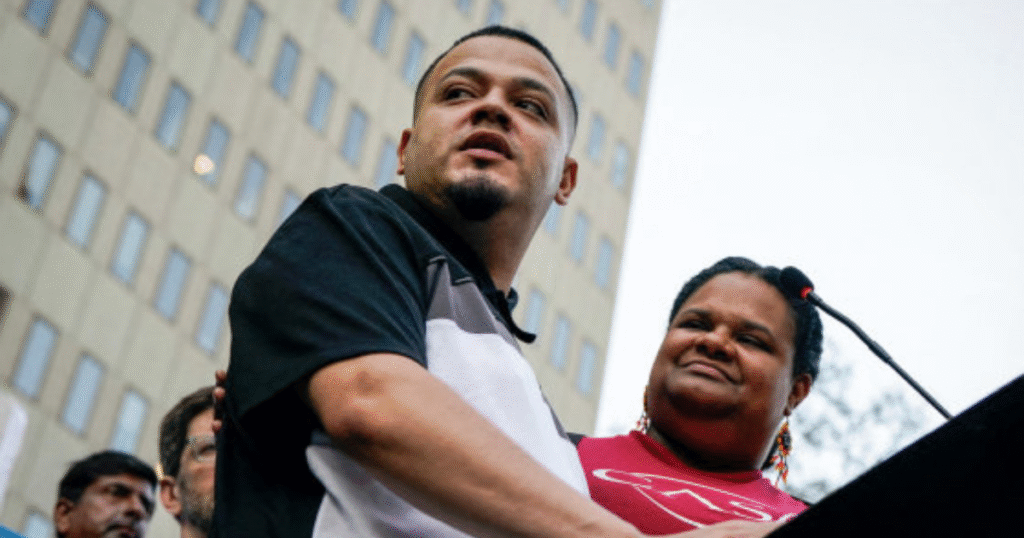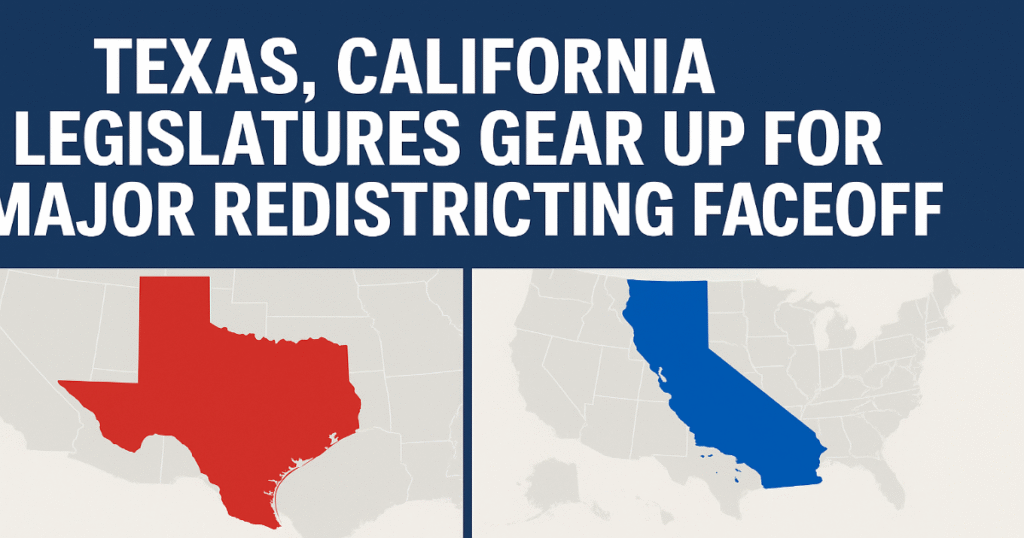
On a quiet weekday morning, Kilmar Abrego García walked into what was supposed to be a routine immigration check-in with U.S. Immigration and Customs Enforcement (ICE). Instead of leaving with the assurance that he could continue his life in the United States—working, raising his family, and contributing to his community—he was unexpectedly detained. His sudden arrest has reignited debates over immigration enforcement practices, family separation, and the precarious position of immigrants who comply with the very system that often turns against them.
This is the story of Abrego García’s journey, his community’s response, and the broader implications of ICE’s actions at a time when immigration remains one of the most divisive issues in America.
A Routine Appointment Turns into Detention no
Kilmar Abrego García had been living in the United States for several years under a tenuous arrangement that allowed him to remain with his family while his immigration case was pending. For months, he had been regularly attending check-ins with ICE, a process meant to demonstrate compliance with U.S. laws and court orders while awaiting further decisions about his legal status.
Friends and family say he expected this appointment to be no different. He arrived prepared, carrying the necessary documentation and accompanied by supporters who believed his record of responsibility and peaceful living would count in his favor. Instead, he was handcuffed and taken into custody, with ICE officials informing him that he now faced the possibility of deportation.
Witnesses described the scene as tense and emotional. Community advocates who had gathered outside the ICE office in solidarity reported tears, frustration, and disbelief as word spread that Abrego García had been detained. “He did everything the system asked of him,” one supporter said. “And now the system is punishing him for following the rules.”
Who Is Kilmar Abrego García?
Abrego García is not a name known nationwide, but in his local community, he has become a symbol of resilience and determination. Originally from Honduras, he first came to the United States fleeing violence and instability that had made life in his home country dangerous and untenable.
Neighbors describe him as hardworking and dedicated to his family. He has held steady employment in construction and landscaping, fields where immigrant labor is often indispensable. His children, U.S. citizens by birth, attend local schools and rely on their father’s presence for emotional and financial support.
Those who know him personally say his detention is not just a legal issue—it is a human tragedy. “He’s a father, a husband, and a community member,” said one local pastor who has offered spiritual support to the family. “This is not just about immigration paperwork. This is about tearing apart a family and a community.”
A History of Deportation and Return
Part of the reason ICE acted decisively at this latest appointment, advocates believe, is Abrego García’s immigration history. Records indicate that he had been deported once before, only to re-enter the United States due to threats he faced back in Honduras.
Immigration law in the United States makes reentry after deportation a serious offense, and ICE often prioritizes such cases. But immigrant rights groups argue that this fails to take into account the conditions that drive individuals to return, particularly in regions plagued by violence, corruption, and economic collapse.
“He didn’t come back because he wanted to break the law,” explained an advocate from a local immigrant rights organization. “He came back because going home meant risking his life. The system doesn’t recognize that complexity. It only sees paperwork and violations.”
The Family Left Behind
For Abrego García’s wife and children, his detention has already upended daily life. His children are struggling with the sudden absence of their father, while his wife is left to navigate both emotional trauma and financial instability.
Community members have organized fundraisers to help cover legal fees and living expenses. Local churches, advocacy groups, and neighbors have provided meals, transportation, and childcare. Still, the uncertainty hangs heavy. “They are living day by day,” said one family friend. “They don’t know if he’ll ever be allowed to come home.”
ICE’s Perspective
ICE has defended its decision, citing Abrego García’s previous deportation as justification. In a statement provided to reporters, the agency emphasized that it “prioritizes the arrest and removal of individuals who have violated immigration law, particularly those with prior deportation orders.”
Officials also underscored that attending a check-in does not guarantee immunity from enforcement. “Compliance with reporting requirements does not exempt individuals from the legal consequences of their immigration history,” the statement read.
This reasoning, however, has done little to quell public outrage. Critics argue that targeting individuals who willingly comply with ICE procedures discourages others from coming forward, undermining trust in the system.
Community Response: Protests and Petitions
In the days following Abrego García’s detention, community groups organized rallies outside ICE offices, demanding his release. Signs reading “Free Kilmar” and “Families Belong Together” were held high as speakers denounced what they described as inhumane enforcement practices.
Petitions calling for his release have gathered thousands of signatures, and local officials have begun pressuring ICE to reconsider. Some lawmakers have even spoken out, framing the issue as part of a larger need for immigration reform that balances enforcement with compassion.
“This is a father who has shown he wants to be part of the American story,” one state representative said at a rally. “We should be finding ways to support families like his, not tearing them apart.”
The Broader Immigration Debate
Abrego García’s case highlights many of the tensions at the heart of America’s immigration system. On one side are those who argue that laws must be enforced strictly, regardless of individual circumstances. On the other side are advocates who believe the laws themselves are outdated and fail to reflect humanitarian concerns.
The Biden administration has faced criticism from both sides. Some conservatives accuse the administration of being too lenient, while immigrant advocates argue that deportations under Biden still reflect Trump-era policies. Cases like Abrego García’s demonstrate the difficulty of balancing enforcement with the human cost.
Legal Options Ahead
For now, Abrego García remains in ICE custody, and his legal team is exploring options to prevent deportation. One possibility is seeking a stay of removal, which could temporarily halt deportation while his case is reviewed. Another is applying for asylum or other forms of relief, though these paths are often narrow and difficult to navigate.
Attorneys stress that his strong community ties and the risk of harm if returned to Honduras could strengthen his case. But they also acknowledge that the outcome is uncertain. Immigration courts are notoriously backlogged, and judges have wide discretion.
The Emotional Toll
Beyond legal arguments and political debates, Abrego García’s detention is, at its core, a deeply personal story. For his children, it means sleepless nights and unanswered questions. For his wife, it means carrying the weight of uncertainty and loss. For his friends and neighbors, it means watching someone they care about be taken away without warning.
“It’s not just paperwork—it’s people’s lives,” said one community organizer. “And until we recognize that, stories like Kilmar’s will keep happening.”
Looking Ahead
As of now, Abrego García’s future remains unclear. Supporters are holding out hope that public pressure and legal advocacy will secure his release. ICE, however, has given no indication that it will reverse course.
The outcome of his case could set an important precedent for others in similar situations. Will compliance with ICE be rewarded with compassion, or punished with detention and deportation? That question looms large not only for Abrego García and his family, but for thousands of immigrants across the country.
Conclusion
Kilmar Abrego García’s detention at a routine immigration appointment has shaken his community and reignited national debates over immigration enforcement. His story embodies the contradictions of a system that asks immigrants to comply, then penalizes them for doing so.
For now, his family waits, his lawyers prepare, and his supporters rally. The stakes could not be higher—not only for one man and his loved ones, but for the values America claims to uphold.
Also Read: ICE Detains Kilmar Abrego García Again; Potential Second Deportation Sparks Due Process Debate
Visit: Cheapest Sale

Hey I am Srimanta Pradhan brings 10 years of experience to News Broadcast and Marketing, specializing in effective communication.A specialized content writer with a decade of expertise crafting compelling narratives for News Broadcast and Marketing. Transforms complex information into engaging, impactful content.




















